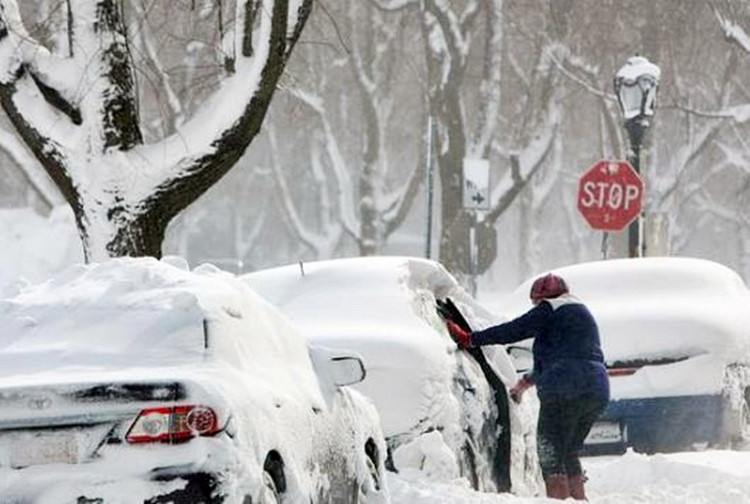The United States is currently grappling with an arctic blast that is bringing subzero temperatures to a significant portion of the country, affecting millions of Americans and causing widespread disruption. This extreme weather event has set the stage for snow and ice in the South, marking the first major winter storm of the season in the region.
The arctic air has led to below-freezing temperatures across vast areas of the country, with more than 75% of the US population expected to experience these frigid conditions. Over the next seven days, more than 250 daily cold temperature records could be shattered, from Oregon to Mississippi. The Iowa caucuses, scheduled for Monday, are forecast to be the coldest on record, with temperatures plummeting below zero and wind chills hitting minus 30 degrees.
Southern cities like Dallas, Nashville, and Memphis have woken up to temperatures in the teens, with similar conditions expected to reach Atlanta, Montgomery, Alabama, and Shreveport, Louisiana by Tuesday. In these areas, temperatures are anticipated to remain below freezing for at least 72 consecutive hours. This prolonged cold poses a risk of damage to exposed pipes and could lead to water main breaks, as warned by the National Weather Service office in Jackson, Mississippi.
The extreme cold is also testing the resilience of Texas's power grid, notorious for its vulnerability to temperature extremes. ERCOT, the state's independent grid operator, has issued a weather watch due to the surge in power demand expected as temperatures fall.
In terms of the weather impact, Montana reported a wind chill as low as minus 71 degrees on Saturday. While it won't be as cold in the South, winds of 10 to 25 mph are expected to create life-threatening wind chills that could cause frostbite on exposed skin within 30 minutes.
As the cold air settles in, a new weather system moving out of the Rockies and into the southern Plains is expected to bring snow, sleet, and freezing rain from Texas to Virginia. Winter storm alerts stretch across this region, affecting more than 45 million people, including all of Tennessee and Arkansas. The Weather Prediction Center has warned of moderate to major potential winter storm impacts in parts of Arkansas, northwest Mississippi, and western Tennessee.
States of emergency have been declared in Arkansas and Louisiana in preparation for the storm. One of the primary concerns is the accumulation of ice, which could build up on roadways, trees, and power lines, creating hazardous conditions. In cities like Dallas, a mix of freezing rain, sleet, and snow is expected, potentially making travel dangerous, especially during the Monday morning commute.
This storm is expected to clear the South by late Tuesday but could then track into the mid-Atlantic and Northeast, increasing snow chances there by Wednesday.
This severe weather situation underscores the impact of extreme weather events on everyday life, from transportation disruptions to power grid challenges. As the country braces for these conditions, emergency measures and preparedness are key to mitigating the adverse effects of this arctic blast.




